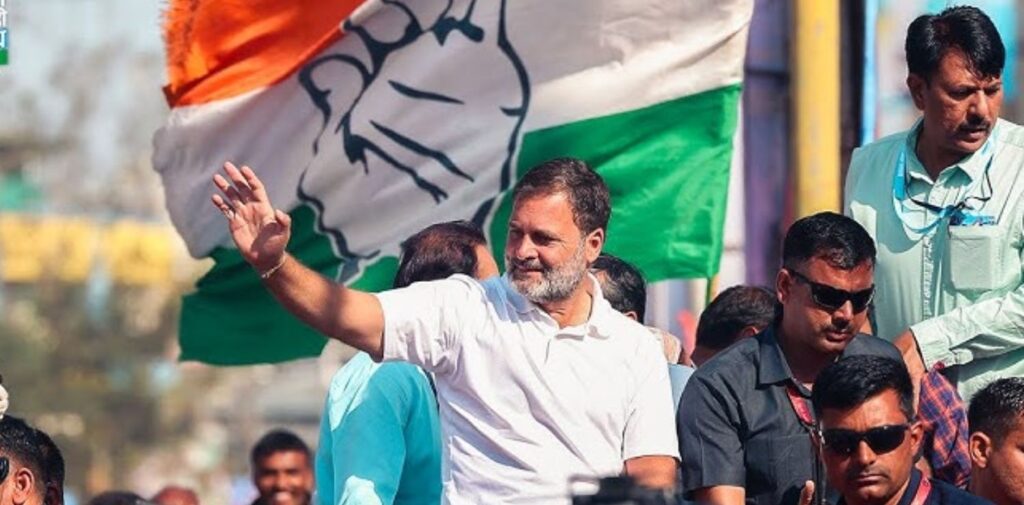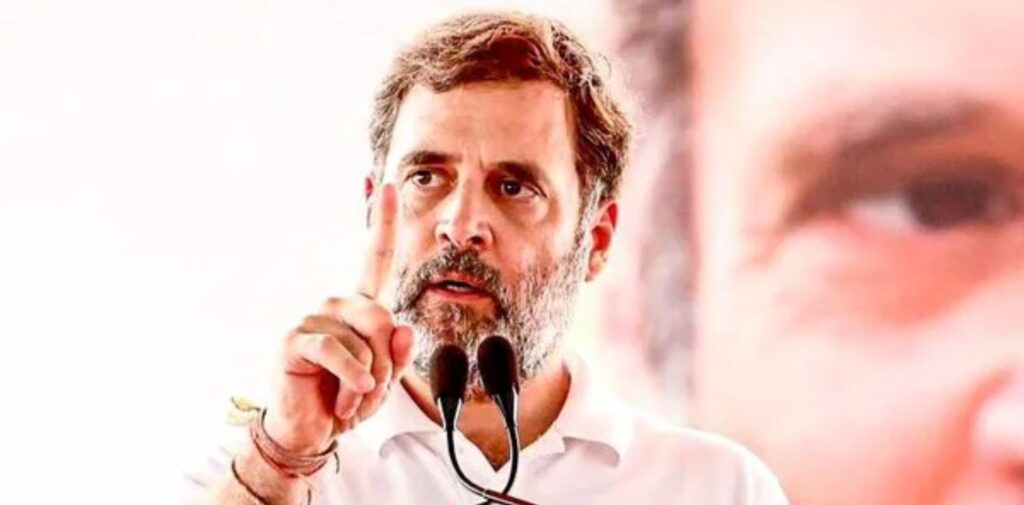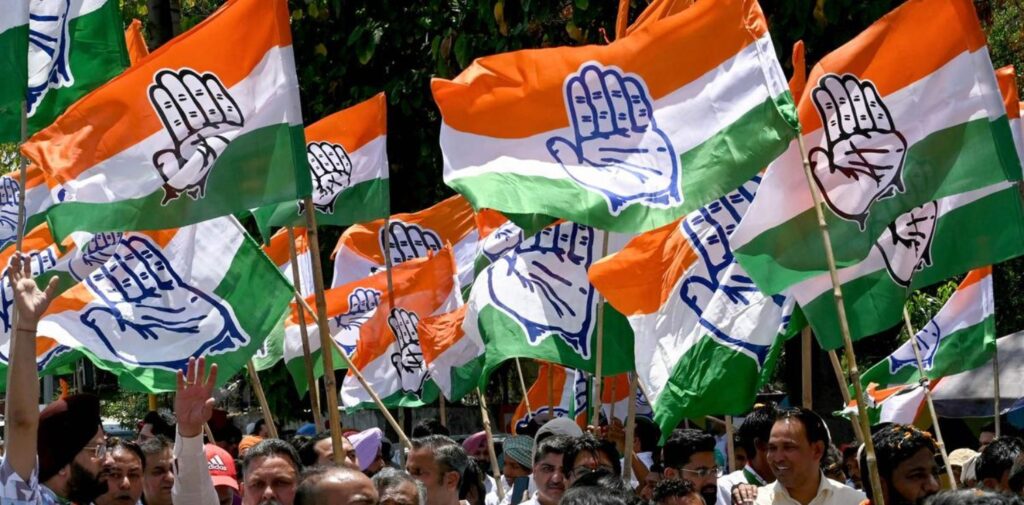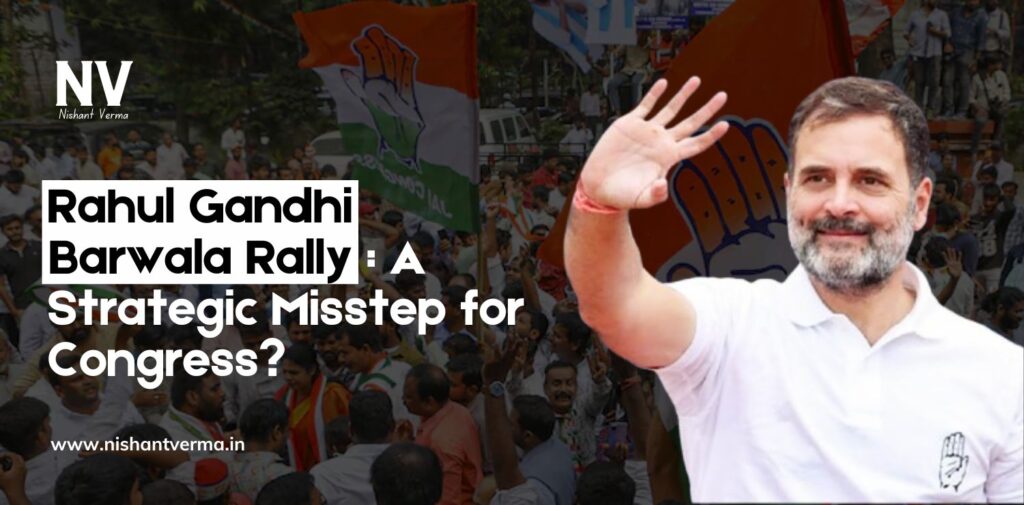Rahul Gandhi’s recent rally in Barwala, Haryana, intended to set the stage for the Congress party’s campaign in the upcoming Vidhan Sabha elections, has sparked controversy and confusion among both the party’s supporters and the opposition. What was meant to be a show of strength and unity for Congress has seemingly backfired, with many interpreting his comments as inadvertently benefiting the BJP. This incident has stirred debates across political circles, raising questions about Congress’s strategy and Gandhi’s approach to connecting with the local electorate.
Rahul Gandhi Barwala Rally: Setting and Context
On the 24th of September, 2024, Rahul Gandhi addressed a public rally in Barwala, Haryana, amidst a crowd that included prominent Congress leaders like Bhupinder Singh Hooda and Kumari Selja. However, Kumari Selja’s absence from the rally became a talking point, highlighting internal party differences that have plagued Congress’s prospects in the state. With political heavyweights like Hooda and Selja being key players in the state, the lack of unity is already viewed as a significant hurdle for Congress’s campaign.

The speech itself appeared to target the BJP government on issues such as unemployment, inflation, and agricultural distress—topics resonating with the rural and agrarian populace of Haryana. However, Gandhi’s attempt to resonate with local sentiments took an unexpected turn when he spoke about Congress’s performance in the Lok Sabha elections, referencing Ayodhya.
The Ayodhya Comment: A Self-Goal?
During his speech, Rahul Gandhi mentioned, “We won in Ayodhya,” seemingly alluding to Congress’s win in the Ayodhya Lok Sabha constituency. While the statement was intended to project confidence and demonstrate Congress’s capability to challenge the BJP even in areas of high symbolic value to the ruling party, it ended up being perceived differently by the local populace. For many in the crowd, this comment translated into the belief that Congress had somehow played a role in the construction of the Ram Mandir—a project closely associated with BJP’s Hindutva ideology.

This narrative spiraled into the perception that Congress was claiming credit for a project that the BJP and its supporters have long championed. Consequently, rather than projecting Congress as a strong competitor, it seemed to affirm the BJP’s narrative, with the audience interpreting it as a reason to further consolidate support for the BJP.
The Fallout and Reactions
The fallout from this comment was almost immediate. Local Congress leaders tried to downplay the significance of the statement, but the damage had been done. Many attendees and political analysts noted that Gandhi’s statement could push voters who were on the fence, especially those who view the Ram Mandir as a crucial issue, toward the BJP. Such incidents further reinforce the perception that Congress lacks a clear stance on pivotal issues like Ayodhya and is prone to self-contradiction.
Senior leaders in Congress, including Kumari Selja, were notably absent from the rally, which only fueled speculations of disunity and a lack of coordination within the party. While the official reason cited for Selja’s absence was a “pre-scheduled commitment,” insiders suggest a growing rift between factions within the state unit of the party, making it difficult to present a unified front against the BJP’s formidable electoral machinery.
Internal Strife: A Weakness Exploited by the BJP
The infighting within Congress was further highlighted by the contrasting statements from different leaders. Bhupinder Singh Hooda, who has a strong influence in Haryana, tried to focus the narrative on local issues, distancing himself from the national-level controversy. On the other hand, Rahul Gandhi’s speech brought national-level topics like Ayodhya to the forefront, making it challenging for local leaders to maintain consistency in their messaging.
This perceived lack of unity and coherence in the Congress’s campaign strategy presents an opportunity for the BJP to exploit. With the BJP emphasizing local development and aligning its campaign with issues that resonate deeply with the Haryanvi electorate, Congress’s missteps and internal discord could cost it dearly in a state that is already leaning towards the ruling party.
What Does This Mean for Congress in Haryana?
Rahul Gandhi’s rally, instead of bolstering Congress’s campaign, has ended up complicating its narrative. The inadvertent endorsement of a project that the BJP proudly associates with its core ideology could alienate a section of Congress’s traditional voter base. Moreover, it raises doubts about the party’s ability to challenge the BJP on ideological grounds.

With Haryana being a state where regional politics and local leadership play a crucial role, Congress’s prospects appear bleak if it cannot get its house in order. The BJP, which has already started its campaign in full swing, is likely to use this incident to discredit Congress further and project itself as the only party capable of delivering on promises.
Conclusion: A Call for Introspection and Strategy Overhaul
Rahul Gandhi’s rally in Barwala, Haryana, serves as a reminder of the complexities of electoral politics and the importance of clear and consistent messaging. As the party prepares for the upcoming Vidhan Sabha elections, it needs to introspect and possibly recalibrate its strategy. The focus should be on addressing local issues with clarity and avoiding statements that could be perceived as contradictory or self-defeating.
Congress cannot afford to let its internal conflicts overshadow its campaign, especially when facing a well-organized opponent like the BJP. The road ahead for Congress in Haryana is fraught with challenges, and if incidents like the Barwala rally continue, it might find itself on a slippery slope that ends in electoral defeat.




